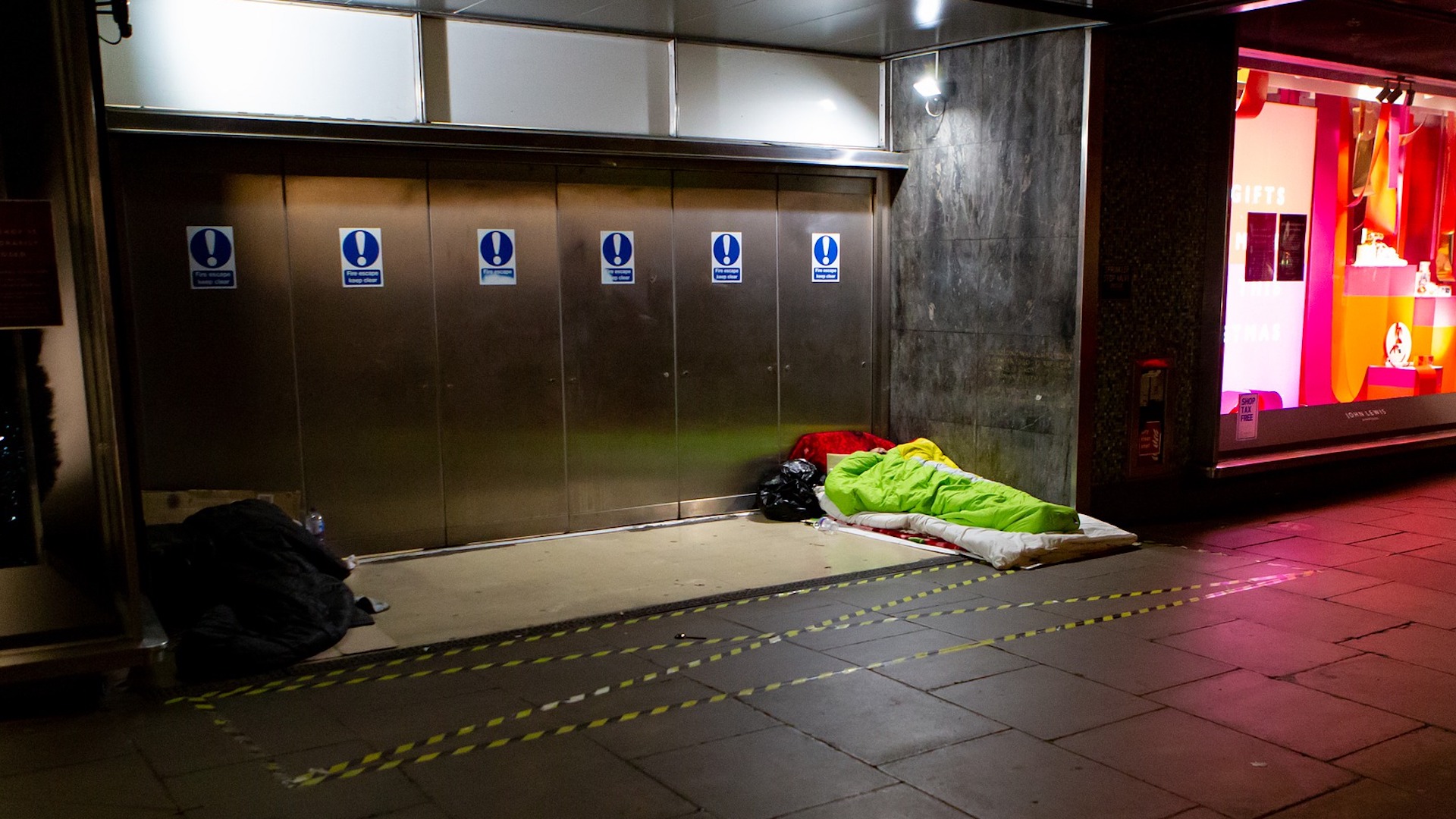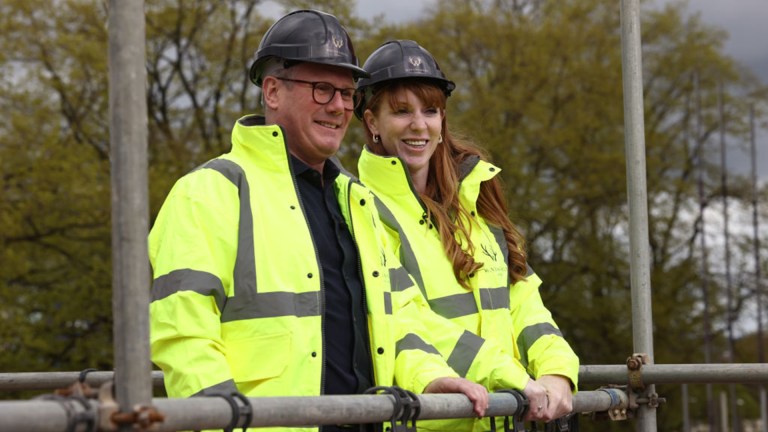‘We have seen what can be achieved when we work together’
The last year has shown “amazing compassion and humanity” among the challenges of the Covid-19 pandemic, according to St Mungo’s chief executive Steve Douglas.
The charity helped more than 4,000 people through the Everyone In scheme during the pandemic, operating 30 hotels across London, Bristol, Bournemouth, Brighton, Oxford and Reading at the height of the pandemic. Nine of the hotels are still operating in the current lockdown.
Around 400 volunteers were recruited to make the scheme a success, working 22,500 hours over 2,500 shifts and delivering more than 210,000 meals.
As a result, nearly 1,500 people have made the switch from a life on the streets to longer-term housing following their spell in the emergency accommodation.
Douglas paid tribute to the work that has gone into making Everyone In a success and vowed to work with the independent commission chaired by Lord Bob Kerslake – announced this week – to learn lessons from the last year.
“Through these terrible times we have also seen some amazing compassion and humanity, and just how resilient we can be,” said Douglas.
“The Covid-19 public health emergency thrust the issue of street homelessness, and the serious medical issues it can cause, sharply into public focus. And through innovative, flexible and creative partnership working thousands of people have been helped to move off the streets.
“We have seen what can be achieved when we work together. We have learned so much, we must capture that and improve so that we can help more people, either by preventing them from coming to the streets in the first place, or helping them move away from them for good.”
‘If people continue to be forced back onto the streets, past achievements will count for very little’
While the Everyone in scheme was transformative for efforts to end rough sleeping, momentum must not be lost in the fight to end homelessness altogether, warned Crisis chief executive Jon Sparkes.
The Public Accounts Committee’s report into Everyone In – released in March – warned the Government’s Rough Sleeping Strategy was “out of date” and has not set out plans on how to end rough sleeping which ”is a failure for which the department cannot blame the pandemic”.
Sparkes told The Big Issue that a plan is needed to ensure the economic fallout of the Covid-19 pandemic does not drive others onto the streets.
He said: “In the past week the UK Government has re-announced accommodation plans to tackle rough sleeping but they are by no means enough. We are still waiting for a long-term strategy from the UK government with homelessness prevention at its core. It is also vital that we expand Housing First schemes across the country to support people with the most complex needs.
“If people continue to be forced back onto the streets, back to living in cars and between friends’ sofas, past achievements will count for very little.”
‘These are the measures needed to make ending homelessness more than a pipe dream’
The Covid-19 pandemic has underlined the need for two of the biggest drivers of homelessness to be solved: a lack of homes and how those seeking asylum are treated, according to Shelter.
The housing charity has long championed the need for a surge in social homes – calling for 3.1 million to be built in the next two decades – while chief executive Polly Neate has warned the organisation has had to support people who are not entitled to help due to their immigration status.
Both must change to end rough sleeping by 2024, even if the Covid-19 pandemic has shown what is possible when the “political will” is there to take on the challenge.
Neate said: “Everyone In saved lives but it did not truly mean ‘everyone’. Shelter has helped many people who were turned away by councils throughout the pandemic. For anyone to be left on streets at any time, let alone during a global health crisis, is unacceptable.
“The government wants to end rough sleeping for good, so it should invest in more rough sleeping support and a new generation of social homes. These are the measures needed to make ending homelessness more than a pipe dream.”
‘We heard far too many stories of young people forced to ‘prove’ their homelessness by sleeping rough’
With Covid-19 ravaging the retail and hospitality industries, youngsters have “borne the brunt” of the pandemic and that is where the work is needed to prevent people falling into homelessness.
Like Shelter, youth homelessness charity Centrepoint’s head of public affairs Paul Noblet has praised the efforts made through Everyone In.
But he has warned of the “enormity of the task ahead” with a growing challenge of how to prevent youngsters falling into homelessness.
More must be done if the country is to grasp the true scale of the issue, Noblet added. Without knowing how many people need help, it will be tricky to end rough sleeping, especially as the country’s Covid-driven economic woes could see a surge in those falling into homelessness.
“Despite its success, the enormity of the task of getting rough sleepers off the streets in those initial weeks laid bare the gaps in current provision and the government’s poor understanding of the true scale of homelessness,” said Noblet. “As the Public Accounts Committee made clear last week, the way we collect rough sleeping data nationally is not fit for purpose and has led to years of under-investment in services and support.
“There’s no doubt the increased funding over the past twelve months has made a difference but we’re only part way there, particularly in terms of provision for homeless young people. During the pandemic, we heard far too many stories of young people forced to ‘prove’ their homelessness by sleeping rough in order to access support, and often finding that support to be unsuitable and potentially leaving them at greater risk.”
‘Public health and homelessness are inextricably linked’
Everyone In’s enduring lesson could be showing what can happen when barriers to housing and support are removed, said Glass Door chief executive Lucy Abraham.
The head of the London homelessness charity told The Big Issue that Everyone In was “ground-breaking” in offering an open door to people who would previously have been required to prove they were entitled to support.
However, the new outlook was “short-lived” and going back to normal risks losing the progress made during the pandemic. Abraham said: “We have to keep reminding ourselves that we’re talking about human beings with inherent dignity, not commodities.”
Abraham warned any future plans must acknowledge that “public health and homelessness are inextricably linked” and that failing to grasp the scale would leave them “doomed to fail”.
That scale could increase in the months ahead, Abraham warned, once the furlough scheme and renter protections end people could face life on the streets. That’s the case, too, for people barred from their support due to their immigration status who may have nowhere to go once released from Everyone In scheme accommodation.
Glass Door switched from church-based shelters to hostel-like individual rooms this winter. That means they can only support a fraction of the usual number of people – 183 this winter compared to 829 in 2019/20.
Tackling homelessness in the pandemic has meant a rethink for Glass Door but Abraham insists shelters still have a role to play in tackling rough sleeping, particularly in tackling the loneliness that has been a big feature of the pandemic.
Abraham added: “We believe a mixed model that allows people to move from shelter to hostels to independence, all buttressed with crucial support from trained support workers, might be the right combination moving forward.”
‘All we are doing is responding to the effects and never dealing with the cause’
Big Issue founder Lord John Bird said: “[Jenrick] has given us a couple of hundred million a few months ago and now he is giving us another couple of hundred million,” he said.
“Isn’t it ridiculous the amount of money we spend on rough sleepers because we never face up to the fact that these people are a public health problem [and] a public health need? It’s a violation of human rights to actually be on the streets. All we are doing in a sense is responding to the effects and never dealing with the cause.”
“The real problem to me is that this government came in in 2019 and has immediately run into the fact that we are still treating homeless people on the street almost as a fixed asset. My big problem is when are we going to get this Government or any government to end this enormous catastrophe that has hit our streets?
“Now the police have turned their back, the local authorities never have enough money to help people on the streets so what happens is that through austerity, people have ended up on the streets. I want to know what the strategy is to end homelessness on the streets?
“That’s more important than any temporary measure. Is this temporary measure going to turn into permanent homes and wraparound support systems who have the demons that drive them onto the streets addressed?”









